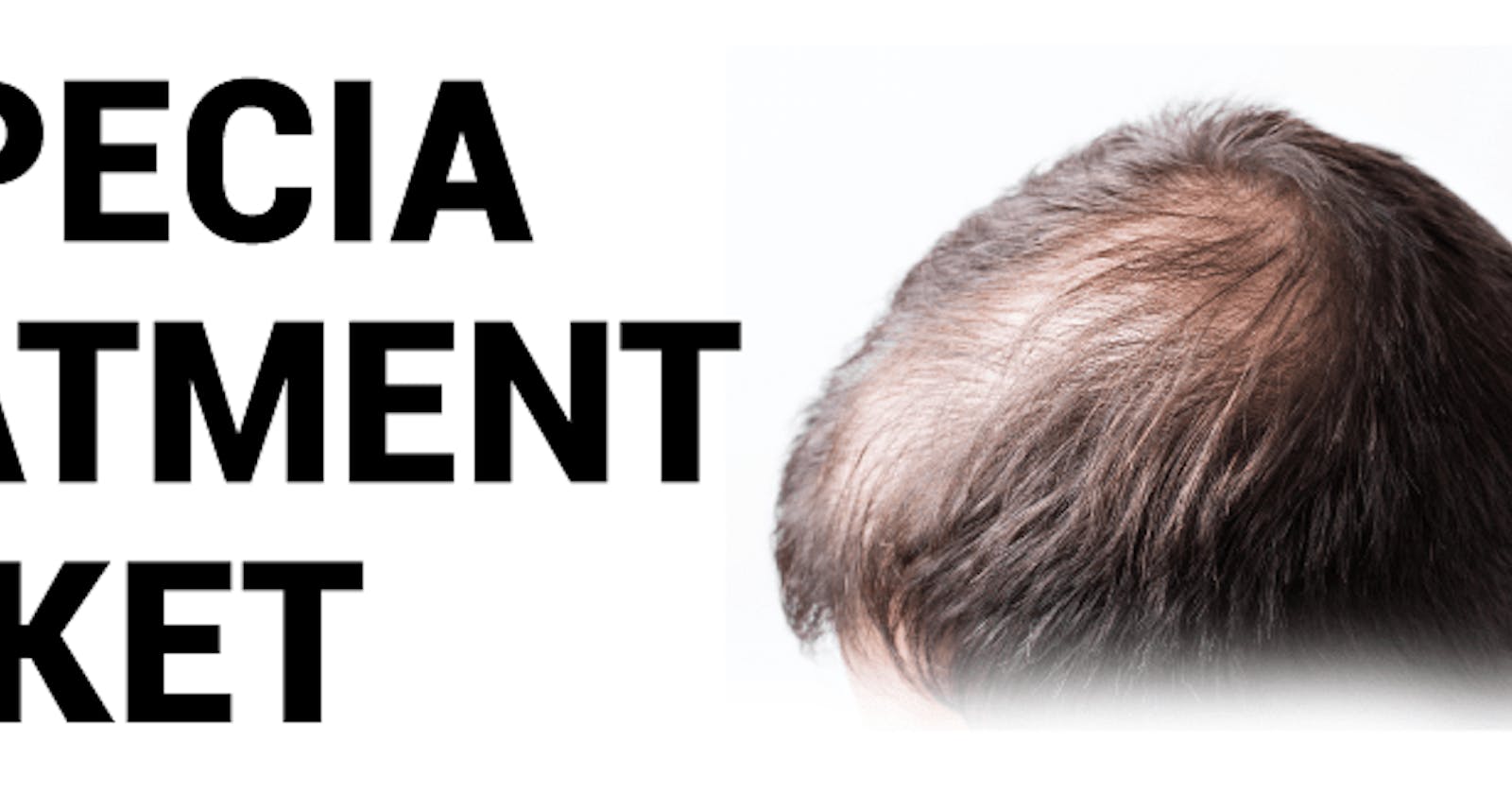Alopecia Treatment Market 2023: Rising Awareness and Growing Demand for Effective Therapies
Alopecia, commonly known as hair loss, is a chronic autoimmune disease that affects millions of people worldwide. The condition can affect any part of the body where hair grows, including the scalp, eyebrows, eyelashes, beard, and other areas. Alopecia can be caused by various factors, such as genetics, hormonal changes, stress, medications, and medical conditions.
There are different types of alopecia, including androgenetic alopecia, alopecia areata, alopecia totalis, and alopecia universalis. Androgenetic alopecia is the most common type of hair loss in both men and women and is caused by genetic factors. Alopecia areata is an autoimmune disorder that causes patchy hair loss on the scalp and other areas of the body. Alopecia totalis and alopecia universalis are rare forms of alopecia that cause complete hair loss on the scalp and the entire body, respectively.
The global alopecia treatment market size was valued at USD 8,894.78 million in 2019 and is projected to reach USD 13,454.16 million by 2027, exhibiting a CAGR of 5.2% during the forecast period.
Get a Free Sample Research PDF: https://www.fortunebusinessinsights.com/alopecia-treatment-market-102822
Factors Driving the Alopecia Treatment Market
The demand for alopecia treatments is driven by the rising awareness about hair loss and its impact on physical appearance, self-esteem, and quality of life.
Hair loss can affect people of all ages, genders, and ethnicities, and can have a profound psychological impact on their well-being.
Many individuals who suffer from alopecia experience social stigma, discrimination, and anxiety, which can lead to depression and other mental health issues.
The increasing availability of advanced and innovative therapies is contributing to the growth of the alopecia treatment market.
There have been significant developments in the field of hair loss treatment, including topical solutions, oral medications, injectable therapies, and hair transplant procedures.
Topical solutions such as minoxidil and finasteride are the most commonly used treatments for androgenetic alopecia.
Challenges in the Alopecia Treatment Market
Despite the significant growth opportunities in the alopecia treatment market, several challenges need to be addressed to ensure the success of new therapies. One of the main challenges is the high cost of many alopecia treatments, which can be a barrier to access for patients who cannot afford them. For example, hair transplant surgery can cost thousands of dollars, and injectable therapies may require multiple sessions, which can add up to a substantial amount of money.
Another challenge is the lack of effective treatments for some types of alopecia, such as alopecia universalis. Currently, there are no FDA-approved treatments for this condition, and patients have to rely on off-label therapies that may not be effective or safe.
Moreover, the COVID-19 pandemic has disrupted the supply chain and manufacturing of alopecia treatments, leading to shortages and delays in the delivery of medications and devices. This has created a significant challenge for patients who depend on these treatments for their hair loss.
Future Outlook for the Alopecia Treatment Market
Despite the challenges, the alopecia treatment market is expected to continue growing in the coming years, driven by the increasing demand for effective therapies and the growing investment in research and development. Many pharmaceutical companies and startups are focusing on developing innovative therapies that can address the unmet needs of patients with hair loss.
For example, Follicum, a Swedish biotech company, is developing a topical solution called FOL-005, which is a peptide-based treatment that stimulates hair growth and prolongs the anagen phase of the hair cycle. The company is currently conducting phase II clinical trials to evaluate the safety and efficacy of FOL-005 in patients with androgenetic alopecia.
Another promising therapy is JAK inhibitors, which are medications that inhibit the activity of Janus kinase enzymes, which are involved in the immune response. JAK inhibitors have shown promising results in clinical trials for alopecia areata and may be effective in other types of hair loss as well. Pfizer recently received FDA approval for its JAK inhibitor, abrocitinib, for the treatment of atopic dermatitis, and the company is also conducting clinical trials for alopecia areata.
